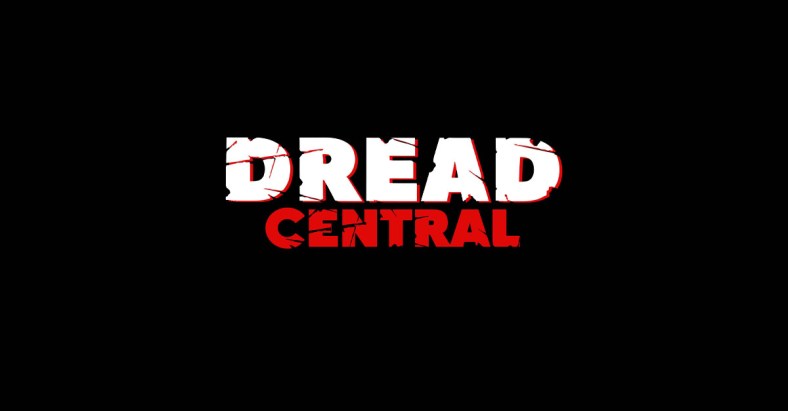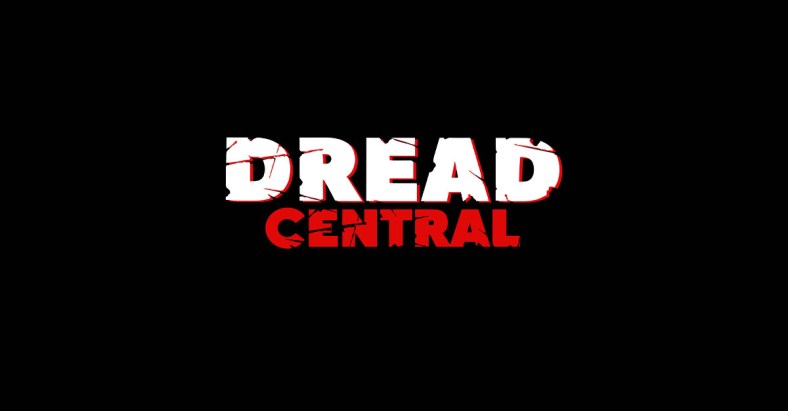Exclusive: Castlevania Showrunner Adi Shankar Talks the Series, His Love of the Games, and the Future

It’s been two weeks to the day since Netflix’s “Castlevania” (revew) adaptation hit the streaming service. Consisting of four chapters, the show is a reimagining of Castlevania III: Dracula’s Curse and the story of Trevor Belmont’s crusade against Vlad “Dracula” Tepes, all led by showrunner Adi Shankar, whose previous works include The Grey, Dredd, and Machine Gun Preacher. A second season, which will bring us a further eight chapters, has already been green-lit by Netflix.
Earlier today, I had the chance to speak with Adi about the near-universal love for “Castlevania”, plans for the future, and more! Check it all out below and definitely check out “Castlevania” on Netflix!
Dread Central: I gotta tell you, when “Castlevania” hit Netflix, I binged it, wrote up a review, and then went back to watch it again. Clearly you did something right!
Adi Shankar: Thank you, man!
DC: Let’s go to the beginning. Can you tell me a bit about where the inspiration to make a “Castlevania” series came from?
AS: Well, for me, I’ve always been a fan of the games and a gamer altogether, so I always wanted to make a video game adaptation that was done right. Or that I THOUGHT was done right.
DC: In my review, I said that I felt like everyone who worked on the series grew up loving the games but wanted to make the series not only tapped into their childhood nostalgia but was also something special for their adult selves.
AS: Three hundred and fifty percent!
DC: Was there something about the story of Castlevania III: Dracula’s Curse that drew you in apart from it being the beginning of the Belmont lore?
AS: To me, “Castlevania” is the story of a family’s history, it’s a family saga that tells stories of multiple generations of a family, so it makes sense to start early.
DC: There were some subtle changes to the story from the game. In the game, Trevor was called upon by the Church but here it’s The Speakers who convince him to help out. However, what we see instead is that the Church seems to be a rather dastardly organization in this version.
AS: See I don’t think the Church is particularly awful. It’s just that there are certain bad people who will weaponize the Church and make that awful. Right? Bad people will weaponize anything and there are certain tools and mechanisms available to you in the time period in which you exist and you see this across time periods and in real life how, like, certain tools just end up becoming used for bad. The same way that certain tools end up being used for good. But tools are neutral, organizations are neutral.
DC: Talk to me a bit about the first season and what we got with those four episodes.
AS: Four chapters of a much greater story, that’s what it is. Once more comes out, no one’s gonna think of it as four episodes or eight or twelve. It’s gonna be twelve chapters of a much greater story.

DC: Your vision brought a version of Dracula that I hadn’t seen before, one that gave him a backstory and depth.
AS: Right, totally. That’s because the best villains are the heroes of their own stories. They’re dudes who, if you’re looking through the world through their lens and their perspective, you’re looking through the kaleidoscope of images that make up their reality, you understand where they’re coming from. In their minds, they’re doing the right thing.
With Dracula, he was super vulnerable and then that allowing himself to become vulnerable cost him. I understand the thought process and logic [behind his actions].
DC: What do you think fans can expect from the second season?
AS: More dopeness!
DC: What has the reaction been like for you seeing the love “Castlevania” has gotten?
AS: I’m still kinda reeling from the reaction!
DC: Still related to Castlevania, what is your favorite game in the series?
AS: Well, Symphony of the Night is still my favorite just because it was on Playstation 1, I’m a Playstation 1 guy, and it was a massive leap in gaming technology back in the day. So Symphony of the Night.
DC: Speaking of gaming technology, what are your thoughts when you see how gaming has changed over the years and the experiences that they can offer now versus when we were children?
AS: They’ve definitely evolved. It’s been broadened to the point where they are so mainstream. Video games were things that you kind of got made fun of when I was growing up. Now, if you’re not playing video games, you’re kind of a relic. If you’re not familiar with video culture, you’re kind of a relic, if that makes sense.
DC: It’s a strange cultural shift.
AS: Totally! And then there are people who don’t view video games as an art form and, you know what? They’re on the wrong side of history, straight up. I think the people who are forward thinking totally recognize it. But there are still people who are clinging on to these dying elements of the old world and, you know what? They’re going to wake up one day and wonder what happened.
DC: How do you, for lack of a better way of putting it, fight that battle?
AS: I don’t really fight it, I just kind of do this. I just make stuff and I just do what I’m passionate about. That’s one of the things I appreciated about the conversation we had last time*, you were really very encouraging. I remember being in a down place that day but you were encouraging me to do my thing and that’s what I do and I hope people will like it, they’ll respond, that it gets the right kind of attention. But there’s no specific thing I do aside from create things for childhood me.

DC: I have a thread going through my head that I’ll try to make sense of, so please bear with me. Earlier this week, I got to interview Steve, aka Flying Lotus, about his movie Kuso, and speaking with him it was clear that there was a passion and love of horror and everything that it has to offer and… I know that you mentioned I was encouraging last time and I hope I still am because I watched “Castlevania” and, I have to tell you, I felt like…it was this weird mixture of feelings where I was in the safety of being a child while, at the same time, I was able to enjoy it and critique it as an adult. The last time I felt like that was Silent Hill and…I’m just so grateful for people like yourself for not going with the mainstream. For example, you brought up how many mainstream people think video games can’t be art and you stand against that. So, it’s wonderful to be able to watch that.
AS: Dude, thank you. No, write that in your article.
DC: You got it! Moving on, I know that you can’t talk about “Assassin’s Creed” because it was only just announced and it’s too early for details but can you tell me about any other project you have going on?
AS: Remember that project Adi Shankar’s Gods and Secrets? It’s back in production. I put it on hiatus for a little bit but now it’s back and Brigitte Neilsen joined the cast, Will Yun Lee joined the cast, Zachery Ty Bryan from “Home Improvement” joined the cast. Super excited to show people that project!
DC: Do you have an approximate timeline for it?
AS: No, nothing official yet. But we can talk about it. The title of the show is really weird because it has my name in it but it’s a personal story.
DC: Adi, as always, it’s a pleasure to chat and I can’t wait for what’s next from you!
AS: Thank you so much!

*Editor’s note: Adi and I spoke earlier this year but the interview audio somehow distorted beyond any chance of salvaging or repair.
Categorized:News

